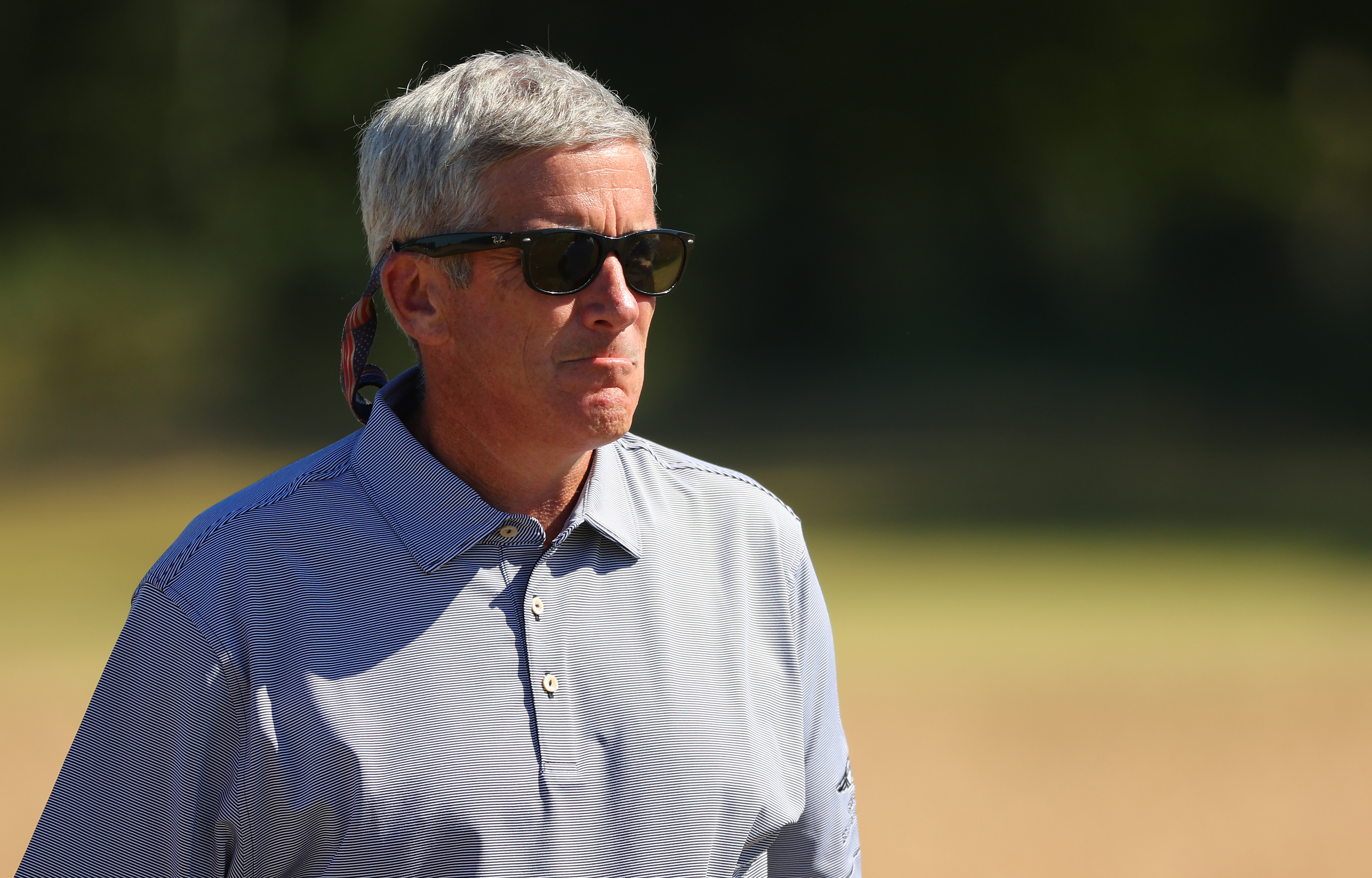AUGUSTA, Ga. – For all the enmity that exists between Greg Norman and Jay Monahan, more connects than separates them. Both have a healthy share of critics in PGA Tour locker rooms. Both are dependent (Monahan partly, Norman wholly) on the whims of Saudi investment chief, Yasir Al-Rumayyan. And by Monday, both will have experienced leaving the Masters in the wake of a loss that seemed inevitable.
Over the years, Norman departed with that feeling as frequently as Jack Nicklaus left with a new jacket. In a few days, it will be Monahan’s turn. He’s the only man who can’t get a win at Augusta National, no matter what transpires.
A negative narrative is flourishing that says professional golf — or, more specifically, Monahan’s product — is withering. Broadcast ratings for the PGA Tour are down most every week in 2024, a trend that stretches back well into ’23. Data offers conclusions but not reasons, so speculation on the cause of the decline has produced several credible theses: the best players are splintered between rival tours; the political infighting and rancor is a turn-off; and the constant chatter about greedy players — invariably ascribed to mischievous media by, well, greedy players — is tone-deaf and repellent to the fan base.
The obvious erosion of fan support is such a worrying undercurrent that even Fred Ridley was asked about it in what must be the first time an Augusta National chairman has ever fielded an inquiry about poor ratings. The Masters is invariably the highest-rated golf broadcast of the year. It was again in 2023, when Jon Rahm’s victory drew 12.1 million viewers, still only good enough to place 131st on the year’s list of most-watched sports events (the ranking is dominated by the NFL, not sports played by athletes who think they deserve NFL money).
Ridley offered a caveat on the topic of declining viewership. “I think part of it is just what’s happening in the world of media and the fact that people are consuming content in different ways, that’s happening in all sports, mobile phones, apps, social media channels, etcetera,” he said. It’s a fair point and acknowledges that ratings are more complex than a raw number, but it won’t dispel concerns that professional golf is eating itself alive. Ridley said as much.
“Golf viewers are down on linear television while other sports, some other sports are up. So you can draw your own conclusions,” he said. “Certainly the fact that the best players in the world are not convening very often is not helpful. Whether or not there’s a direct causal effect, I don’t know. But I think that it would be a lot better if they were together more often.”
Which is why Monahan is will have to take an ‘L’ regardless of what unfolds in the coming days.
If the Masters is a ratings hit, then it will be presented as evidence that the majors are healthy while regular PGA Tour golf is wilting, that the game only thrives when the best players are together. Cue increased pressure to finalize a deal with the Saudis to end the division and restore normalcy. The particulars of an agreement have been agonizingly slow to materialize and are a long way from concluding and delivering on it isn’t solely within Monahan’s gift. But it will be his burden to shoulder.
Alternatively, if the Masters is a dud compared to the norm, then it fuels fears that golf is inexorably declining, that the discord has driven fans away and not even the best players on the greatest stage can draw them back. Guess in whose direction fingers will be wagged in that scenario?
This week is a no-win for Monahan, but a win-win for Al-Rumayyan.
During the recent meeting in the Bahamas with PGA Tour player-directors, Al-Rumayyan said that while LIV might look unimpressive on a profit and loss statement, he was bullish about its market share of top players. His comment illustrates how the Saudis have two ways to win the perception battle — build a strong product or diminish the competition. LIV remains execrable, but an impression of the PGA Tour in decline serves the same purpose. It’s like a man hollering about the criminality of opponents while fending off 90-odd indictments of his own.
Who wins the 88th Masters will have zero impact on how the divide is healed. This war is fought now in boardrooms, not locker rooms. The tension palpable at the 87th Masters — the first meeting of players since LIV’s proxies filed an antitrust suit against the Tour eight months earlier — is absent this year. The withdrawal of litigation after the June 6th Framework Agreement dissolved the most potent source of angst, even if it infuriated some Tour board members who perched on the fence when their own circuit was under sustained threat.
Any victory this weekend by a LIV player — and there are a handful who have to be considered serious contenders — will be brandished by Norman as a rock-solid win for his flaccid enterprise.
Monahan won’t have that luxury, no matter who wins or how many are watching.

